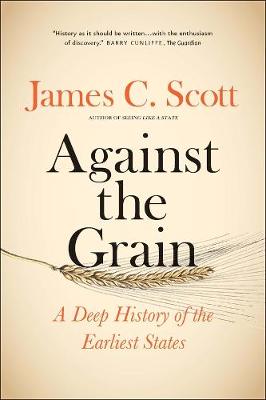An Economist Best History Book 2017
"History as it should be written."-Barry Cunliffe, Guardian
"Scott hits the nail squarely on the head by exposing the staggering price our ancestors paid for civilization and political order."-Walter Scheidel, Financial Times
Why did humans abandon hunting and gathering for sedentary communities dependent on livestock and cereal grains, and governed by precursors of today's states? Most people believe that plant and animal domestication allowed humans, finally, to settle down and form agricultural villages, towns, and states, which made possible civilization, law, public order, and a presumably secure way of living. But archaeological and historical evidence challenges this narrative. The first agrarian states, says James C. Scott, were born of accumulations of domestications: first fire, then plants, livestock, subjects of the state, captives, and finally women in the patriarchal family-all of which can be viewed as a way of gaining control over reproduction.
Scott explores why we avoided sedentism and plow agriculture, the advantages of mobile subsistence, the unforeseeable disease epidemics arising from crowding plants, animals, and grain, and why all early states are based on millets and cereal grains and unfree labor. He also discusses the "barbarians" who long evaded state control, as a way of understanding continuing tension between states and nonsubject peoples.
- ISBN10 030024021X
- ISBN13 9780300240214
- Publish Date 11 September 2018 (first published 22 August 2017)
- Publish Status Active
- Publish Country US
- Imprint Yale University Press
- Format Paperback (US Trade)
- Pages 336
- Language English
- URL http://wiley.com/remtitle.cgi?isbn=9780300240214
